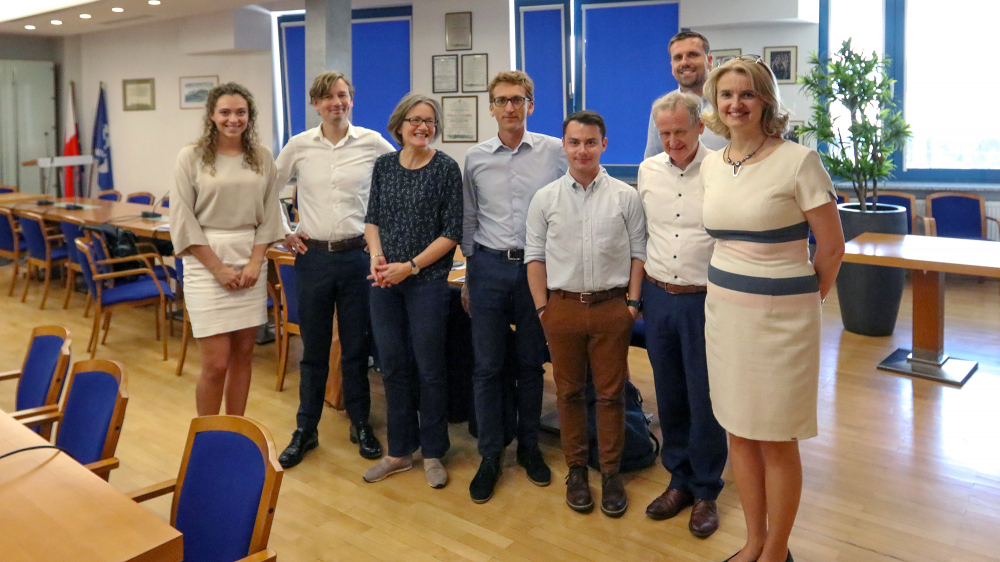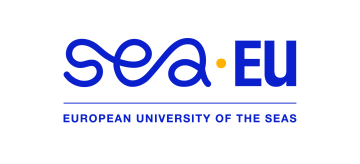
Associate professor at the Department of Labour Law at the Faculty of Law and Administration of the University of Gdańsk. Author of several dozen pre-reviewed publications in the field of maritime labour law (in cooperation with the Maritime Institute in Vigo and also Universidade da Coruña) and European law, including commentaries on/to the articles of the Charter of Fundamental Rights (edited by Professor A. Wróbel), as well as on/to system-wide studies in the Labour Law System edited by Professor KW Baran. Co-author of numerous commentaries on/to the Labour Code, as well as on clerical and collective labour.
An expert in numerous European programs related to the migration of people, freedom to provide services, posting of workers and subcontracting chains among others: Study on the protection of workers' rights in subcontracting processes in the European Union under the Community Action Program in the Sphere of Employment and Social Solidarity - Progress 2007-2013. (Project No. VC / 2011/0015), as well as Study on wage-setting mechanisms and minimum rates of pay applicable to posted workers in accordance with Dir. 96/71 / EC (Project No VC / 2015/0334), and recently Study to support an impact assessment on the Written Statement Directive (91/533 EEC) .
Research manager of the 3-year Erasmus Plus Inventions 2016-2019 research project: SENSE in transnational transport in the EU, dedicated to the situation of posted workers in high mobility sectors. Research manager of another prestigious 3-year program implemented under Horizon 2020-SC6-GOVERNANCE-2019, Enhancing social rights and EU citizenship - Working Yet Poor - focusing on the reasons for poverty and social exclusion, with the reasons not lying in the unemployment ambit.
orcid.org/ 0000-0001-5271-9998
The scope of research and scientific activity pivots on methods of pursuing the assumed objectives that drive social policy of both the European Union and the Member States. It encompasses promoting a high level of quality and sustainability of employment guaranteeing adequate and decent social protection, combating social exclusion and poverty, primarily however, improving working conditions conducive to social convergence across the EU.
To this end, the analyses address the correlation between the free economic market and its control mechanisms, the consequences of the recession and the economic crisis and the emergence of new unstable and undefined forms of work performance. The phenomenon of precarious work and quite a large group defined as Vulnerable and Underrepresented Persons (VUP) resulting from socio-economic changes is the essence of said studies. Hence, the selection of appropriate methods of protecting precarious employees presents itself as a paramount mission toward gaining professional and life stability. One important area of the study is providing the meaning and definition to such concepts as “an employee”, “an employer”, “working condition”, “minimum wage”, obligatory elements of remuneration etc.
The scope of the research addresses complexities arising from cross-border relations resultant from the functioning of the common market. The institution of posting has become one of particular concerns, tangibly reflecting difficulties with reconciling economic freedoms and social protection. The key objective of the European project - SENSE in transnational transport in the EU – between 2016-2019, was to solve problems engendered in the field of EU transnational transportation through displaying adequate understanding of the legal setting, not just at a single - national level, but also at the EU and multinational/comparative level, by developing and implementing state of the art education and by working with innovative tools: a Legal Navigation App. Thanks to European cooperation, the subject of in-depth collected studies has embraced the following issues: the posted workers’ rights guarantee, decent working conditions, protection of a host country’s economic interest, elimination of social dumping, level- playing field in the access to work and services, protection of workers’ rights in subcontracting chain, and the role of social partners. The underlying research has allowed to present and canvass many doubts and questions that mirror debates, disputes and different views the major stakeholders hold about the understanding of the EU mission goals such as fairer single market or equal pay for equal work.
M. Tomaszewska, M. Szypniewski: The European Social Dialogue in The Road Transport Sector (w:) Cross-Border Employment and Social Rights in the EU Transport Sector, red. B. Bednarowicz, A. Zwanenburg, Eleven International Publishing, ISBN 978-94-6236-964-1, pp.151-182)
M. Tomaszewska El equilibrio entre la libertad de mercado y la política de la Unión Europea : el ejemplo de los derechos de los trabajadores desplazados (w:) Aspectos fundamentales del derecho público y derecho laboral en Polonia, España Y América Latina / red. Jakub Stelina, Pedro José Carrasco Parrilla, Valencia : Tirant lo Blanch, 2017, S. 73-86, 978-84-9143-727-7)
M. Tomaszewska, M. Szypniewski, Are the minimum rates of pay of posted workers in compliance with the social market economy? Studia Iuridica Varsovia 2016, ISSN 0137-4346, s. 379- 39)
M. Tomaszewska: Mechanism making decision receiving certificate MLO for ships flying the Polish and Off-shore flays (w:) SOBRINO, J. M. (editor), La toma de decisiones en el ámbito marítimo: su repercusión en la cooperación internacional y en la situación de las gentes del mar, Bomarzo, Albacete (Spain), 2016, ISBN 978-84-16608-51-5.)
M. Tomaszewska: Protection mechanisms of Polish seafarers’ working conditions in the era of globalization and flag-of-convenience system, (w:) ed: J. Cabeze Pereiro Vigo&E. Rodriguez Rodriguez , Bomarzo 2015 (Spain)
